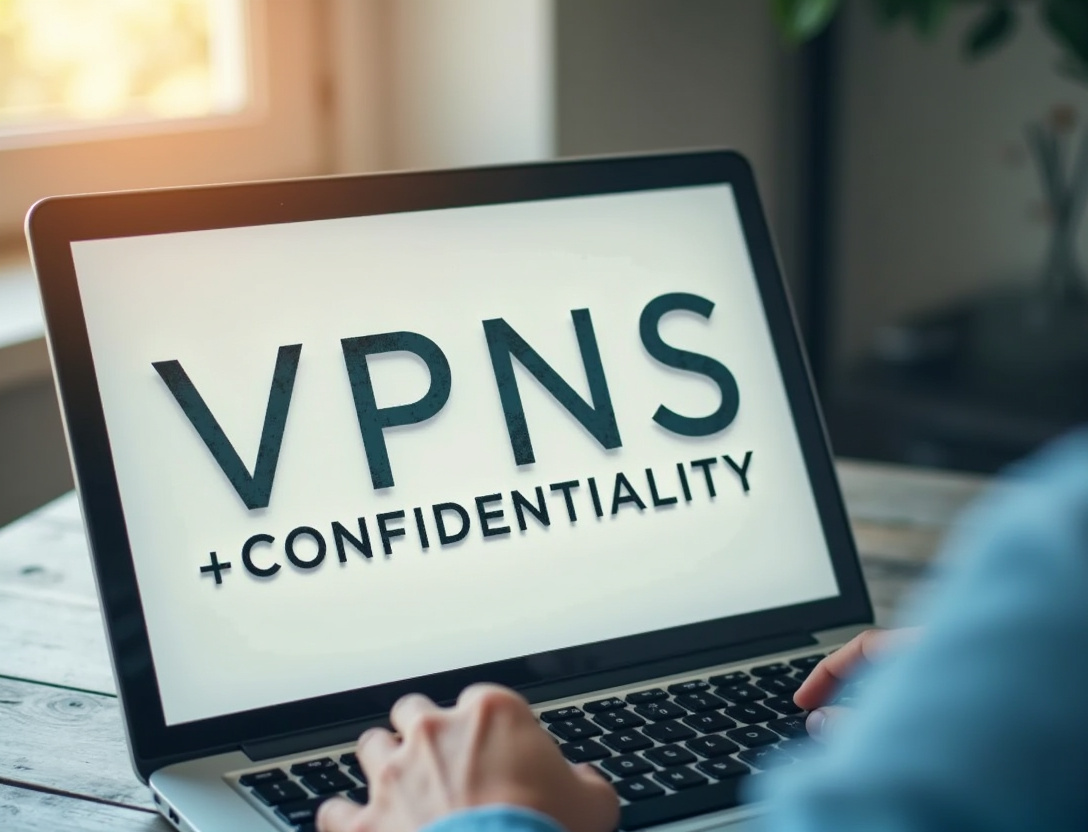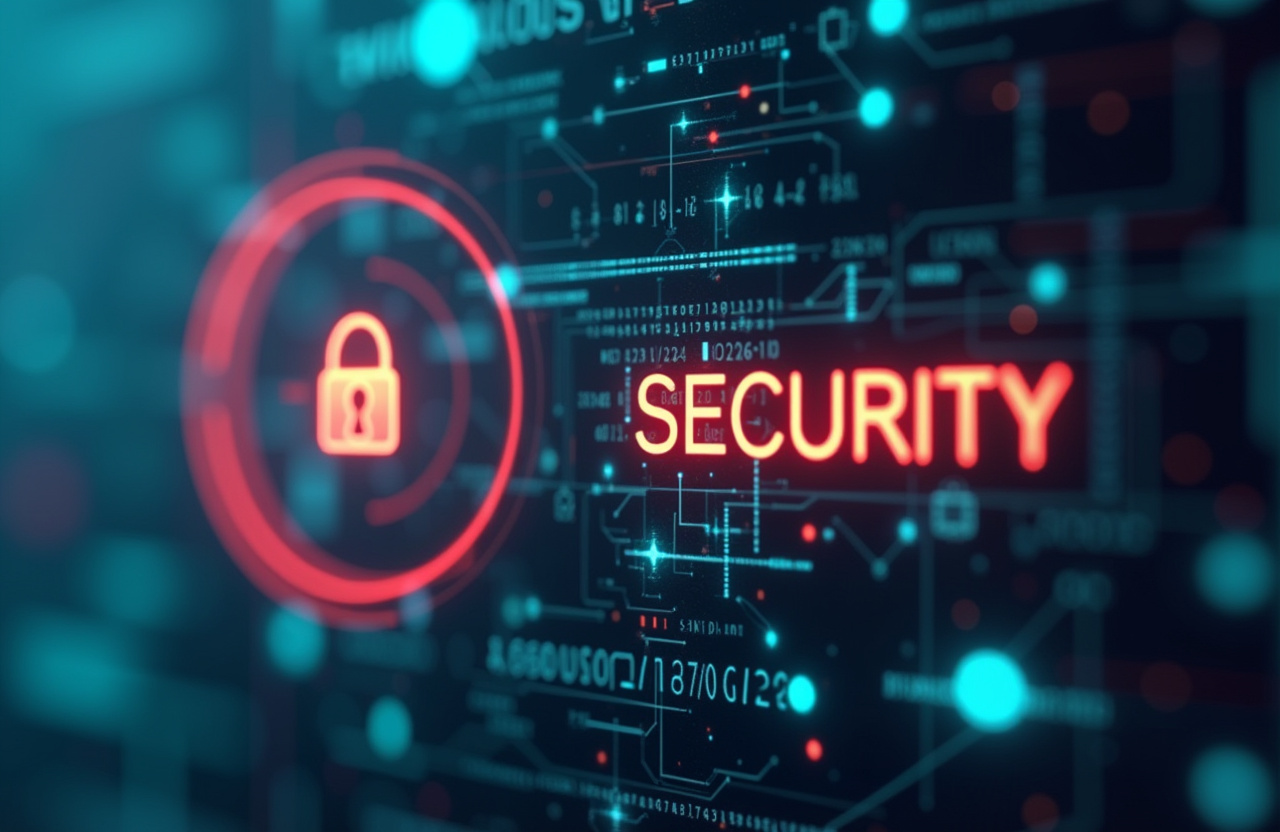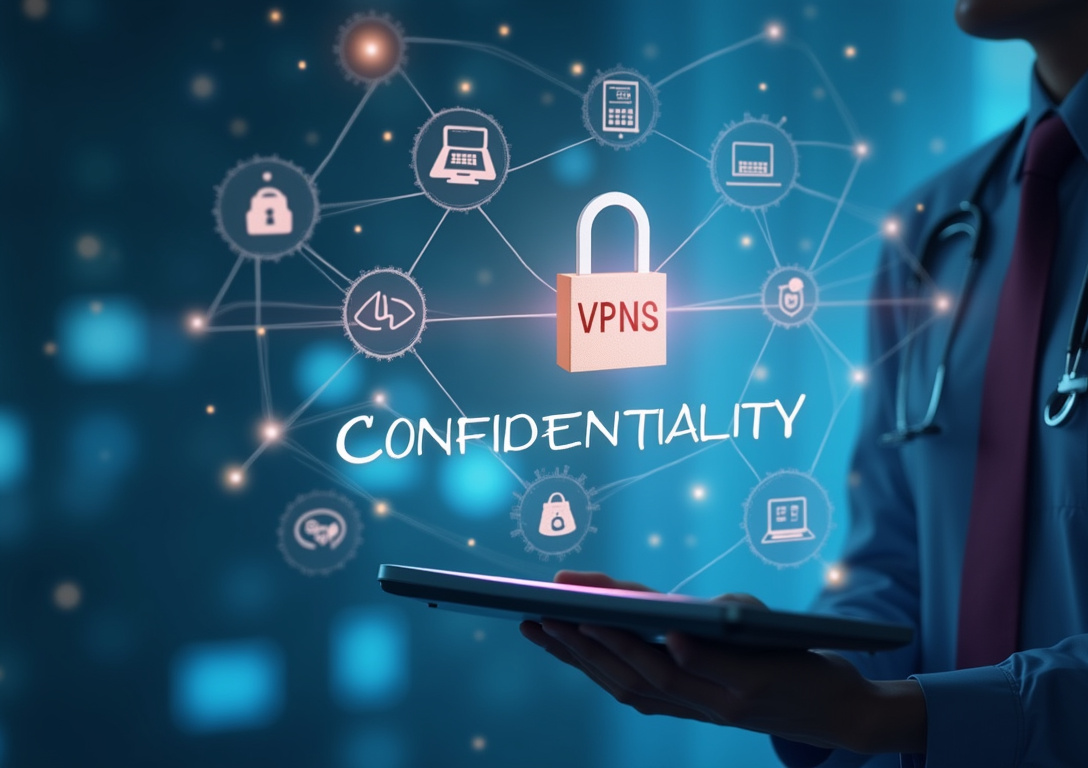VPNs for Online Therapy: Safeguarding Client Confidentiality

Table of Contents
VPNs for Online Therapy: Safeguarding Client Confidentiality
The increasing reliance on digital platforms in mental healthcare has ushered in a new era of accessibility and convenience, yet simultaneously introduces complex challenges concerning data security and client privacy. This article delves into the critical role of Virtual Private Networks (VPNs) in fortifying the security infrastructure of online therapy, with particular emphasis on protecting sensitive client information. Establishing and maintaining client confidentiality is an ethical imperative that demands meticulous attention in the digital realm.
This entails implementing comprehensive measures that address the inherent vulnerabilities of internet communication and proactively mitigate the risks associated with data breaches and unauthorized access. This discussion will explore how a strategically implemented 'online therapy VPN' can serve as a powerful tool for therapists and clients alike, bolstering trust and providing the necessary safeguards to ensure the sanctity of the therapeutic relationship. The digital transformation of mental healthcare presents both opportunities and challenges.
While online therapy expands access to individuals in remote areas, those with mobility limitations, or those who simply prefer the convenience of virtual sessions, it also exposes sensitive client data to potential threats. The information shared during therapy sessions, including personal histories, emotional vulnerabilities, and deeply personal experiences, is highly confidential and must be protected with the utmost care. Ethical guidelines and legal regulations, such as HIPAA in the United States, mandate that therapists take reasonable steps to safeguard client confidentiality.
The consequences of failing to do so can be severe, ranging from reputational damage and professional sanctions to legal liability and the erosion of client trust. The internet is inherently a public network, and data transmitted over the internet is vulnerable to interception by malicious actors. Hackers, cybercriminals, and even government entities may attempt to eavesdrop on online communications, steal personal data, or disrupt online services.
Without adequate security measures, client data transmitted during online therapy sessions could be exposed to these threats. A 'VPN for therapy' provides a crucial layer of protection by creating a secure, encrypted tunnel for all internet traffic. This encryption scrambles the data transmitted between the client and therapist, rendering it unreadable to unauthorized parties.
Even if an attacker were to intercept the data, they would not be able to decipher it without the decryption key. In addition to encryption, a VPN also masks the user's IP address, which is a unique identifier that can be used to track online activity. By hiding the IP address, a VPN makes it more difficult to trace online activity back to a specific individual or location.
This provides an additional layer of anonymity and helps to protect client privacy. Selecting the right VPN for therapeutic purposes requires careful consideration. Not all VPNs are created equal, and some may offer better security features and privacy protections than others.
Therapists should look for VPNs that offer strong encryption, a strict "no-logs" policy, and a wide range of server locations. A "no-logs" policy ensures that the VPN provider does not retain records of user activity, further safeguarding client privacy. The integration of a VPN into the online therapy workflow should be seamless and unobtrusive.
Therapists should educate their clients on the benefits of using a VPN and provide guidance on how to set it up and use it effectively. Open communication about security measures can build trust and empower clients to take an active role in protecting their own privacy. Beyond the technical aspects of VPN usage, it's vital to cultivate a culture of security awareness in the therapeutic practice.
This may involve training staff on data security protocols, developing comprehensive privacy policies, and regularly reviewing security measures to ensure they remain effective in the face of evolving threats.
The protection of client confidentiality extends beyond simply encrypting communication channels. 'Personal data protection' encompasses a broader range of measures aimed at safeguarding all aspects of a client's information, from initial contact details to session scheduling and reminders, session notes and assessments, invoicing and payment details to any and all communications, whether by secure portal, email or otherwise. A VPN plays a crucial role in securing this data by protecting all internet traffic, including communication with Electronic Health Record (EHR) systems, secure email providers, payment processors, and other online services used in the course of therapy.
Many therapists utilize cloud-based services for scheduling, billing, and record-keeping, which means that sensitive client data is stored on remote servers. Securing access to these servers is therefore a critical component of 'personal data protection'. A 'VPN for therapy' ensures not only secure transfer of all data to these platforms, but secure access when using them.
In conjunction with strong, unique passwords and multi-factor authentication to the applications themselves, the VPN provides additional peace of mind. The use of insecure networks, such as public Wi-Fi hotspots in coffee shops or airports, poses a significant risk to client data. These networks are often unencrypted and vulnerable to man-in-the-middle attacks, eavesdropping, and other security threats, making them prime targets for hackers seeking to steal sensitive information.
A 'VPN for therapy' ensures that all data transmitted over these networks is encrypted, preventing unauthorized access even if the network itself is compromised and making it safe to access all client data, at any location. When evaluating VPN options, therapists should prioritize services that offer strong encryption protocols, such as AES-256 (Advanced Encryption Standard) or ChaCha20, which are considered the industry standard for data security. These protocols use complex algorithms to scramble data, making it exceptionally difficult for unauthorized parties to decrypt it.
A feature also increasingly found in VPNs, is the option to "obfuscate" traffic, hiding even the fact that a VPN is being used. Additionally, it is important to consider the VPN's logging policies. A reputable VPN provider will have a clear and transparent policy regarding data retention, ensuring that no or minimal logs of user activity are stored.
This is particularly crucial for therapists, as any stored logs could potentially be subpoenaed in legal proceedings, or be subject to data breaches, compromising client confidentiality. Beyond encryption and logging policies, therapists should also consider the server locations offered by the VPN provider. Choosing a VPN with servers located in countries with strong data privacy laws, such jurisdictions within the European Union (under GDPR) or Switzerland, can provide an additional layer of protection against surveillance and data requests from government agencies, depending on where the therapist themselves is based.
However, it is important to be aware of the legal implications of using servers in different jurisdictions and ensure compliance with all applicable regulations and also to ensure the location of servers is compatible with the platforms being used for 'online therapy VPN' . The implementation of a VPN should be part of a comprehensive security strategy that includes other measures, such as strong, unique passwords for all accounts, multi-factor authentication wherever possible, the use of a password manager to securely store credentials, regular software updates to patch security vulnerabilities, and endpoint security solutions such as antivirus software and firewalls. Therapists should also provide ongoing training to their staff on best practices for data security, emphasizing the importance of protecting client confidentiality at all times.
The security posture of the entire practice, from the devices used to access client data through to the policies and procedures in place, will be strengthened by an emphasis on maintaining client privacy. By taking a holistic approach to data protection, therapists can create a secure and trustworthy environment for their clients, fostering a strong therapeutic alliance and promoting positive outcomes. In the event of a data breach or security incident, having implemented a VPN and other robust 'personal data protection' security measures can help to mitigate the seriousness of the damage and protect client information from unauthorized access.
Furthermore, it demonstrates a commitment to due diligence, which can be important from a legal and ethical standpoint..
'Communication security' in online therapy is paramount, forming the bedrock upon which trust and confidentiality are built. While encryption provided by platforms designed specifically for telehealth (teletherapy) is often presented as a baseline security measure, relying solely on that may not be sufficient in all circumstances. A VPN, complementing telehealth platforms, adds an extra layer of security by encrypting all internet traffic originating from the therapist's, or client's device, regardless of the platform used.
This is particularly important when using platforms that may not have true end-to-end encryption, where the platform provider itself has access to the unencrypted content, or when communicating via standard unencrypted email or other inherently less secure channels. Furthermore, in situations where "bring your own device (BYOD)" policies are in place, for staff and therapists, the security of the communications being handled will be heavily impacted by the baseline security of the device and network they connect to. This is where the implementation of a 'VPN for therapy' is crucial.
The use of a VPN ensures that all communication between the therapist and client, and all internal communications relating to client data and care, are protected from eavesdropping and interception, even if the underlying platform or network is compromised. Therapists should also proactively focus on how the VPN being used handles traffic and connections, ensuring DNS (Domain Name System) and IP (Internet Protocol) leak protection, and a "kill switch" feature being enabled. DNS and IP leaks can expose the user's actual IP address and browsing activity, even when the VPN is active, thus needing active mitigation to be prevented.
A kill switch automatically disconnects the internet connection if the VPN connection drops, preventing data from being transmitted unprotected, particularly important during live sessions. Therapists should also educate their clients on the importance of using secure communication channels and encourage them to use a 'online therapy VPN' when participating in online therapy sessions. This collaborative approach to security fosters a sense of shared responsibility and actively reinforces the importance of protecting client confidentiality.
Clear, easy to follow guidance can be created and provided by the therapist, outlining steps to install, configure and use the VPN prior to sessions, so as not to impede the time spent dedicated to therapy itself. In addition to encryption, robust 'communication security' also critically involves verifying the identity and authenticity of the parties involved in the exchange. Therapists should therefore take proactive steps to rigorously authenticate their clients and ensure that they are communicating safely, securely and directly with the correct individual, preventing impersonation or unauthorized access to sensitive information .
This can be achieved through the consistent and disciplined use of secure login procedures, multi-factor authentication (MFA) wherever technically possible, and other reliable and robust identity verification methods. The potential risk of man-in-the-middle attacks, a significant risk, where an attacker intercepts communication seemingly transparently between two parties, is a very real and significant concern in online therapy. A VPN can help to substantially mitigate this specific risk by encrypting all traffic and making it proportionally more difficult for attackers to successfully intercept and decrypt sensitive communications.
However, and crucially, it is important to acknowledge that a VPN on its own is not a foolproof, silver bullet solution and should always be used in close conjunction with other essential and complementary security measures. Regular robust security audits and comprehensive penetration testing, conducted by professional and certified cybersecurity experts, can help to proactively identify any potential residual vulnerabilities in the communication infrastructure and guarantee that all systems are correctly configured and adequately secured. Therapists must commit to staying fully informed about the latest emerging security threats and actively adapt their systems and security protocols accordingly to effectively counter any new risks.
The selection and appropriate implementation of a 'VPN for therapy' is not merely a technical decision; it's a crucial ethical consideration that reflects a therapist's commitment to upholding client confidentiality and providing a secure therapeutic environment. Therapists must carefully evaluate various VPN options, considering factors such as encryption strength, logging policies, server locations, jurisdiction, speed, reliability, ease of use, and cost, ensuring the chosen service aligns with their specific needs and ethical obligations. Free VPN services should generally be avoided, as they may monetize user data through tracking and advertising, or even inject malware into user devices, thereby creating a significant breach of client trust and security.
Instead, therapists should opt for reputable, paid VPN services that have a proven track record of protecting user privacy and security. It's crucial to thoroughly review the VPN provider's privacy policy to understand how they collect, use, and protect user data and ensuring a 'no logs' policy is in place, as previously mentioned. Consider, too, that some VPNs may be subject to data retention laws in certain jurisdictions, potentially compromising client confidentiality.
Therefore, choosing a VPN provider located in a country with strong data privacy laws is essential. Additionally, the VPN server locations should be considered, ensuring availability in the regions where clients are located, optimizing connection speeds, and minimizing latency. Implementation of even the most secure VPN should be part of a holistic security strategy which includes, but is not limited to, multi-factor authentication (MFA) on all accounts, strong and unique passwords, using secure email providers, regularly scanning devices for malware or vulnerabilities, keeping all software and operating systems rigorously up to date.
Therapists should also take steps to secure their physical environment, protecting devices from unauthorized access and preventing sensitive information from being overheard or viewed by others. Client education is an essential aspect of safeguarding confidentiality and includes explaining the therapist's security practices, encouraging clients to use VPNs when participating in online session, educating clients about the risks of using public Wi-Fi networks, providing tips on creating strong passwords, advising clients on how to recognize and avoid phishing scams. When addressing best practices for 'personal data protection', therapists must fully understand the legal and ethical requirements with which they are required to comply.
Understanding regulations is not enough and the onus is on the therapist to ensure full understanding of these requirements. For example, HIPAA in the United States outlines specific requirements for protecting Protected Health Information (PHI), and GDPR in the European Union imposes strict rules on the processing of personal data. Therapists must also comply with the ethical codes of their professional organizations, which typically emphasize the importance of confidentiality, privacy, and informed consent.
To help clients make informed decisions about their care, therapists should create a clear and comprehensive privacy policy that outlines how they collect, use, and protect client data. This policy should be readily available to all clients and explained in plain language, ensuring clients fully understand their rights and options. Ethical principles stress acting with integrity and honesty, as the effective safeguarding of 'client confidentiality' is built on a foundation of trust and transparency.
Prioritizing security and implementing robust safeguards not only protects client data, but it fosters a stronger therapist-client relationship, promoting comfort and improving outcomes.
In conclusion, the integration of a robust 'online therapy VPN' solution is not just a technological upgrade, but a fundamental pillar in safeguarding 'client confidentiality' within the evolving landscape of digital mental healthcare. As therapists increasingly rely on online platforms for delivering care, the responsibility to protect sensitive client information intensifies. This necessitates a proactive and comprehensive approach that addresses the inherent vulnerabilities of internet communication and robustly mitigates potential risks to 'communication security'.
Embracing a VPN, alongside other essential security measures, demonstrates a tangible commitment to ethical practice, and to the well-being of clients, strengthening, in turn, the vital therapeutic alliance. The evolving threat landscape demands continuous vigilance. Therapists should commit to staying informed about emerging cybersecurity threats and adapt their security protocols accordingly.
As new vulnerabilities are discovered and new attack vectors emerge, it's imperative to proactively address these risks before they can compromise client data. This may involve investing in ongoing security training for staff, regularly reviewing and updating security policies, and conducting periodic security audits and penetration testing. A 'VPN for therapy' has a positive, direct and profound impact on promoting client trust and confidence.
When clients feel secure knowing that their personal information and communication is protected, they are able to engage more freely with the therapeutic process. This, in turn, can lead to improved outcomes and a stronger therapeutic relationship built on transparency. The therapist, when choosing a VPN, is highly recommended to actively seek guidance from cybersecurity professionals.
Navigating the complexities of online security can be challenging, and seeking expert advice can help therapists make informed decisions and implement effective security measures. Cybersecurity consultants can provide valuable insights into the latest threats, assess the effectiveness of existing security protocols, and recommend tailored solutions to address specific vulnerabilities. The benefits of implementing a VPN extend beyond enhancing security.
A VPN can also allow therapists and clients to access online resources and platforms that may be restricted in certain regions. This can be particularly useful for therapists who work with clients from diverse cultural backgrounds or clients who travel frequently. The strategic use of a VPN can thus facilitate access and improve the overall therapeutic experience.
However, it's equally essential to note that using a VPN is not a substitute for ethical and professional conduct. Therapists must continue to adhere to the ethical guidelines of their profession and maintain appropriate boundaries with clients, irrespective of the technological tools they employ. In addition to all of the aforementioned considerations, an often overlooked aspect is the importance of having a robust incident response plan in place.
In the event of a data breach or security incident, it's crucial to having a well-defined plan of action that outlines how to contain the breach, investigate the incident, notify affected parties, and restore systems to normal operation as quickly and safely as possible. The effectiveness of incident response strongly depends on advanced preparation and regular training, therefore its essential to establish the measures in advance. By prioritizing security, promoting transparency, and taking a proactive approach to risk management, therapists can leverage the power of online therapy while upholding the highest ethical standards.
The dedication to 'personal data protection' is not merely a compliance obligation, but an ethical imperative, demonstrating a genuine long term commitment to protecting the well-being of those they serve.
Stay Updated
Get the latest VPN news, tips, and exclusive deals to your inbox.




